Wine can be a delightful addition to meals and social gatherings, but it’s easy for casual sipping to turn into a habit.
Many people enjoy a glass or two without issue, yet sometimes that nightly pour becomes more of a necessity than a treat.
Recognizing the signs that your wine consumption might be getting out of hand is crucial for maintaining your health and well-being. This article will explore eight indicators that suggest your wine habit may have crossed a line.
By understanding these signs, you can take steps to reassess your relationship with alcohol and make informed decisions about your drinking habits.
1) You start hosting ‘alternative’ wine tastings for your neighbors every weekend.
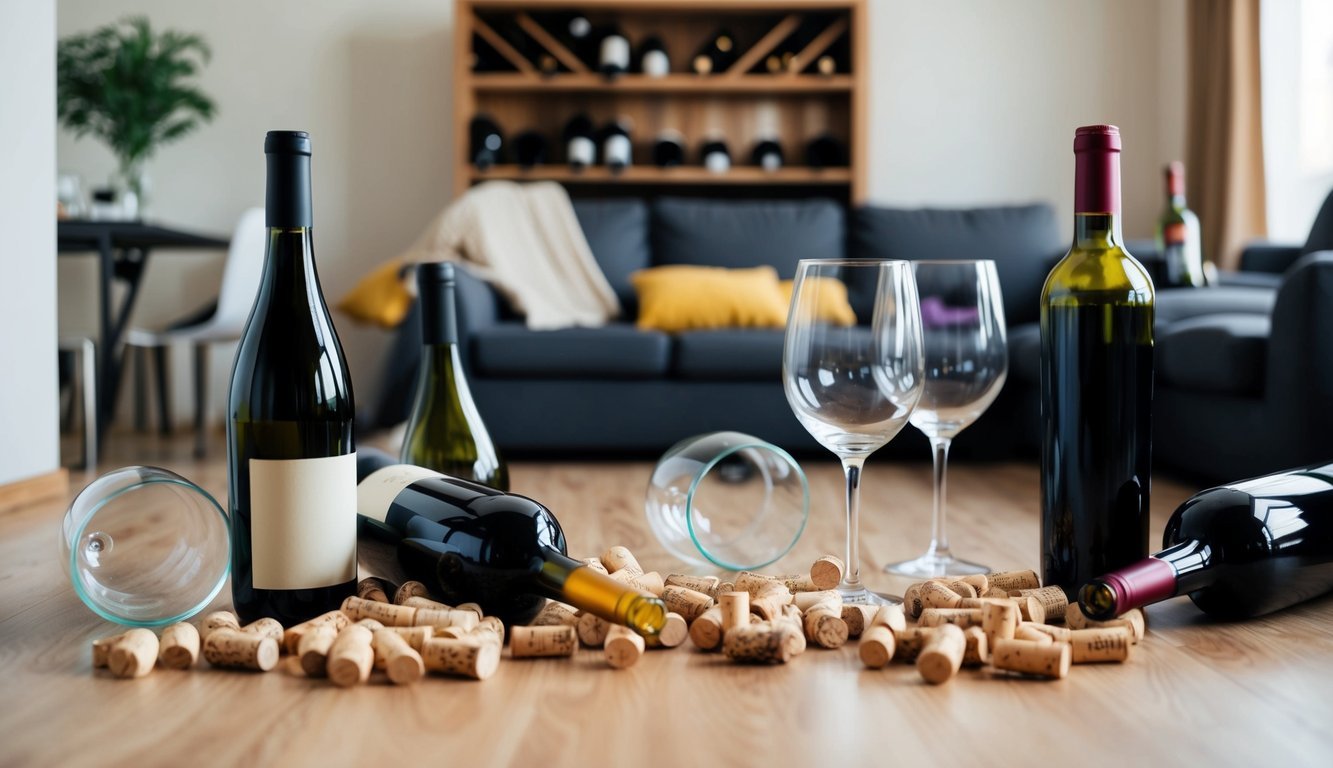
You’ve gone beyond the occasional wine night with friends.
Now, you’re organizing elaborate tasting events every weekend, inviting all your neighbors.
These aren’t your typical wine tastings.
You’ve started experimenting with unconventional pairings and themes.
One week it’s “Wine and Breakfast Cereals,” the next it’s “Vintages and Video Games.”
Your garage has been transformed into a makeshift tasting room.
You’ve installed mood lighting and even purchased a fancy spittoon (though it rarely gets used).
You spend hours crafting the perfect tasting notes, describing each wine in increasingly bizarre ways. “This Merlot has notes of wet skateboard and grandma’s perfume,” you declare with authority.
Your neighbors are starting to give you concerned looks.
They wonder if you’re running an underground wine club.
But you’re too caught up in planning next week’s “Wines of the Apocalypse” theme to notice.
2) Every room in your house has a hidden bottle, like a scavenger hunt for adults.
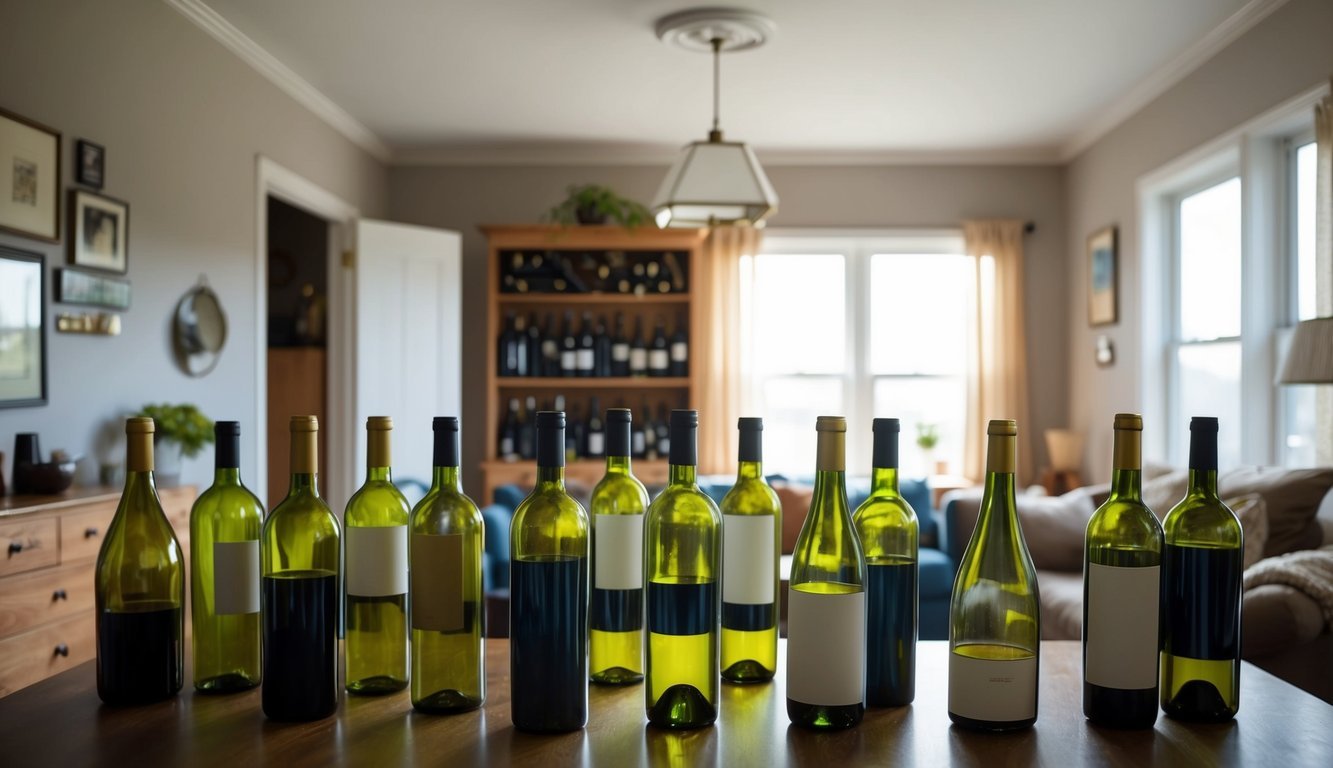
You’ve turned your home into an unintentional wine treasure hunt.
There’s a bottle tucked behind the potted plant in your living room.
Another one’s nestled in your sock drawer.
The guest bathroom cabinet hides a cheeky Chardonnay.
Even your home office has a secret stash in the filing cabinet.
It’s like you’re playing hide-and-seek with wine bottles.
You might chuckle at the thought, but it’s a sign your habit has spread throughout your living space.
This setup makes it easy to grab a drink anywhere, anytime.
It’s convenient, sure, but it also means wine is always within reach.
You might tell yourself it’s just for emergencies or unexpected guests.
But deep down, you know it’s more about ensuring you never run out.
This scattered approach to storage can make it harder to keep track of your consumption.
It’s easier to lose count when bottles are spread out everywhere.
Consider consolidating your collection.
Having wine in one designated spot can help you better monitor your intake and make more mindful choices.
3) Your emergency contact is now your local wine shop’s number.
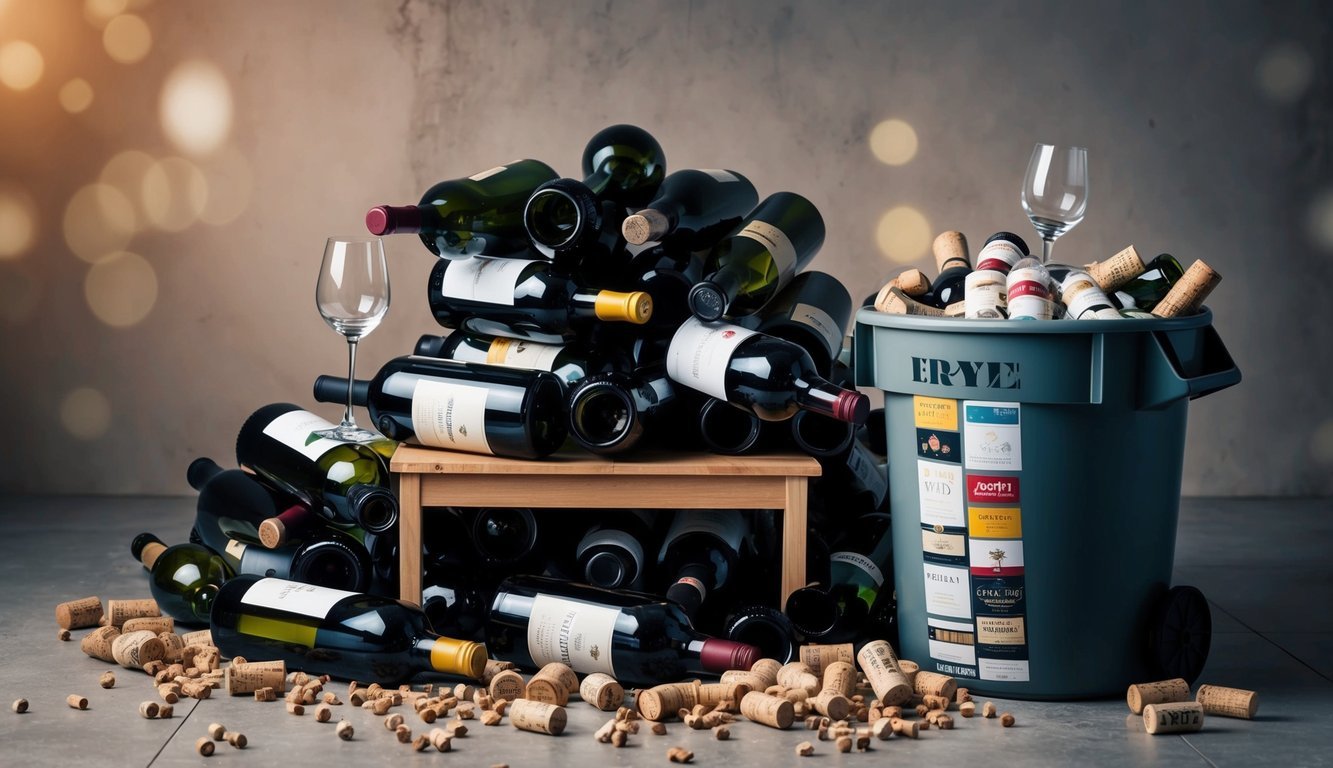
You might have a wine problem if you find yourself speed-dialing your favorite wine shop more often than your family or friends.
It’s a bit concerning when the shop owner knows your voice before you even introduce yourself.
Remember when you used to memorize important numbers like your doctor’s or your best friend’s? Now, the only digits etched in your brain belong to that charming little wine boutique down the street.
You’ve even caught yourself considering adding them as your ICE contact.
After all, they’re the ones you call in times of “crisis” – like when you’re out of Pinot Noir on a Tuesday night.
Your phone’s call history is a dead giveaway.
It’s filled with more calls to “Vine & Dandy” than to your own mother.
You justify it by saying you’re just being a loyal customer, but deep down, you know it’s more than that.
4) You’ve started pairing wine with breakfast items… French toast and Cabernet anyone?
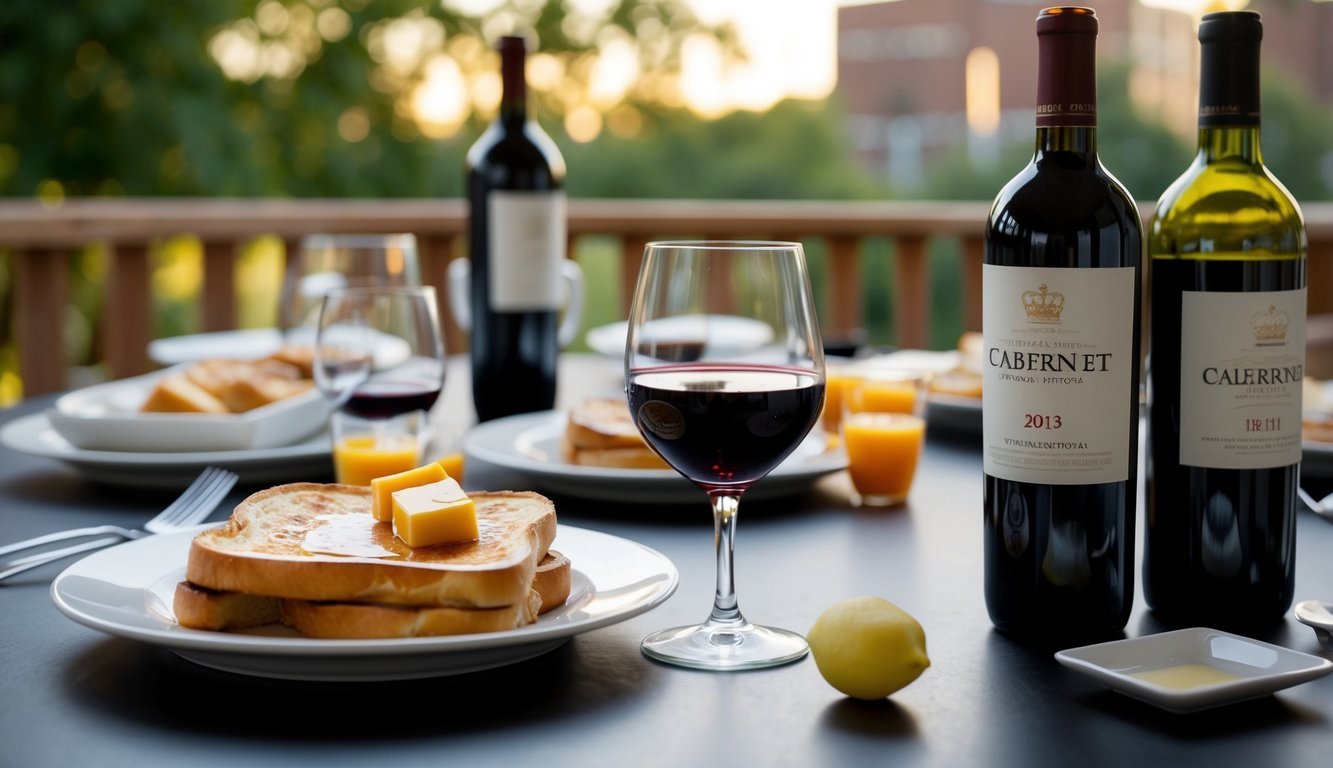
You might think wine is strictly for dinner, but your habits are changing.
Suddenly, you’re eyeing that bottle of Cabernet with your French toast in the morning.
It’s not just you.
Some wine enthusiasts are embracing the idea of wine with breakfast.
They’re pairing Muscat with bacon and French toast, enjoying the sweet and savory combination.
You’ve started experimenting too.
Maybe you’ve tried a crisp white with your eggs Benedict or a bold red with your steak and eggs.
The acid in wine can cut through rich breakfast foods, cleansing your palate.
But remember, this isn’t a common practice.
If you’re regularly reaching for wine at breakfast, it might be a sign your habits are shifting.
While occasional brunch pairings can be fun, daily morning wine could indicate a growing dependence.
Consider your motivations.
Are you genuinely interested in the pairings, or are you looking for an excuse to drink earlier? If it’s the latter, it might be time to reassess your relationship with wine.
5) Your pet’s new toy? An empty wine bottle.
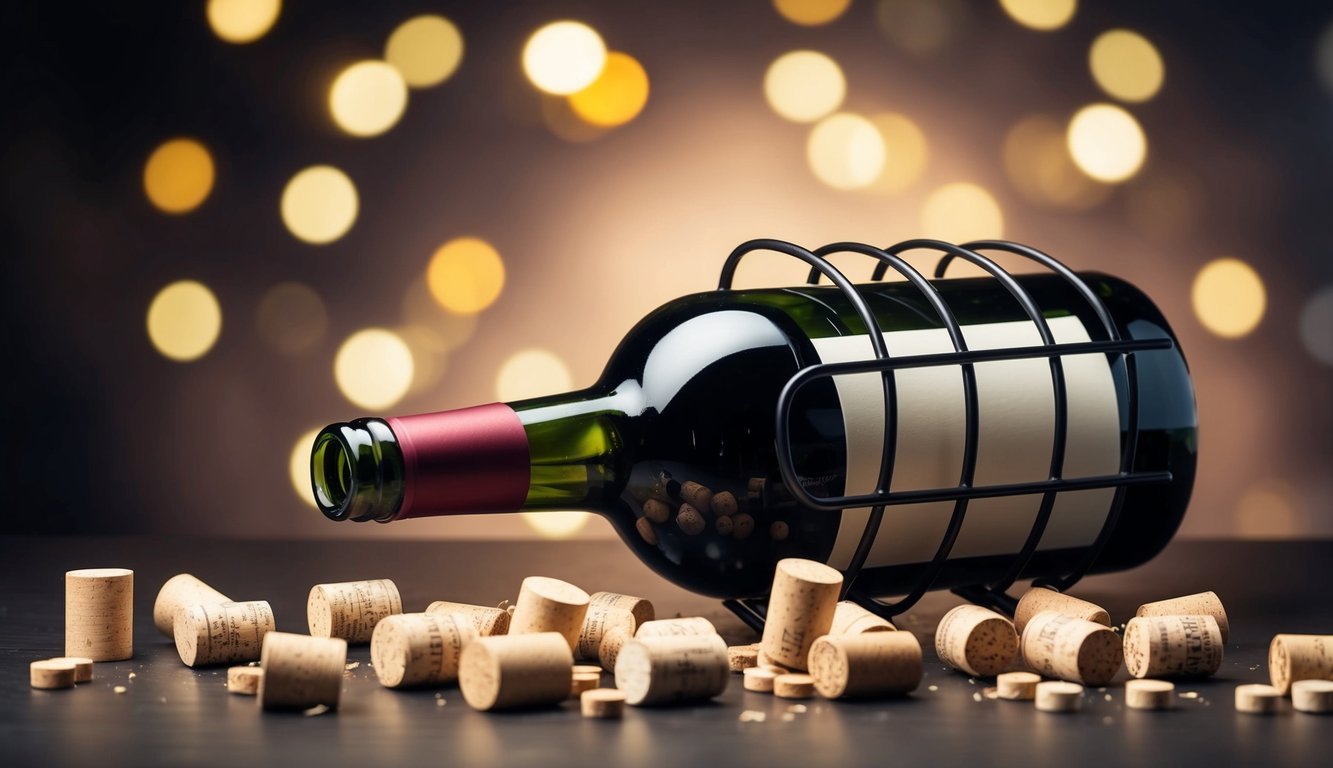
You might notice your furry friend has taken a keen interest in your discarded wine bottles.
While it may seem harmless, this could be a sign your wine consumption is increasing.
Empty bottles lying around provide easy access for pets.
Dogs, in particular, might be drawn to the lingering scent of wine.
This situation poses risks for your pet’s health.
Even small amounts of alcohol can be toxic to animals.
Licking residual wine from bottles could lead to alcohol poisoning in dogs.
Wine bottles can also be a physical hazard.
Pets might accidentally break them, risking cuts or injuries.
Glass shards are especially dangerous if ingested.
If you find your pet frequently playing with empty wine bottles, it’s time to reassess your habits.
Consider reducing your wine intake and disposing of bottles properly after use.
Remember, your pet’s safety should always come first.
Keep all alcoholic beverages out of their reach to prevent potential harm.
6) You’ve considered naming your next child Chardonnay.
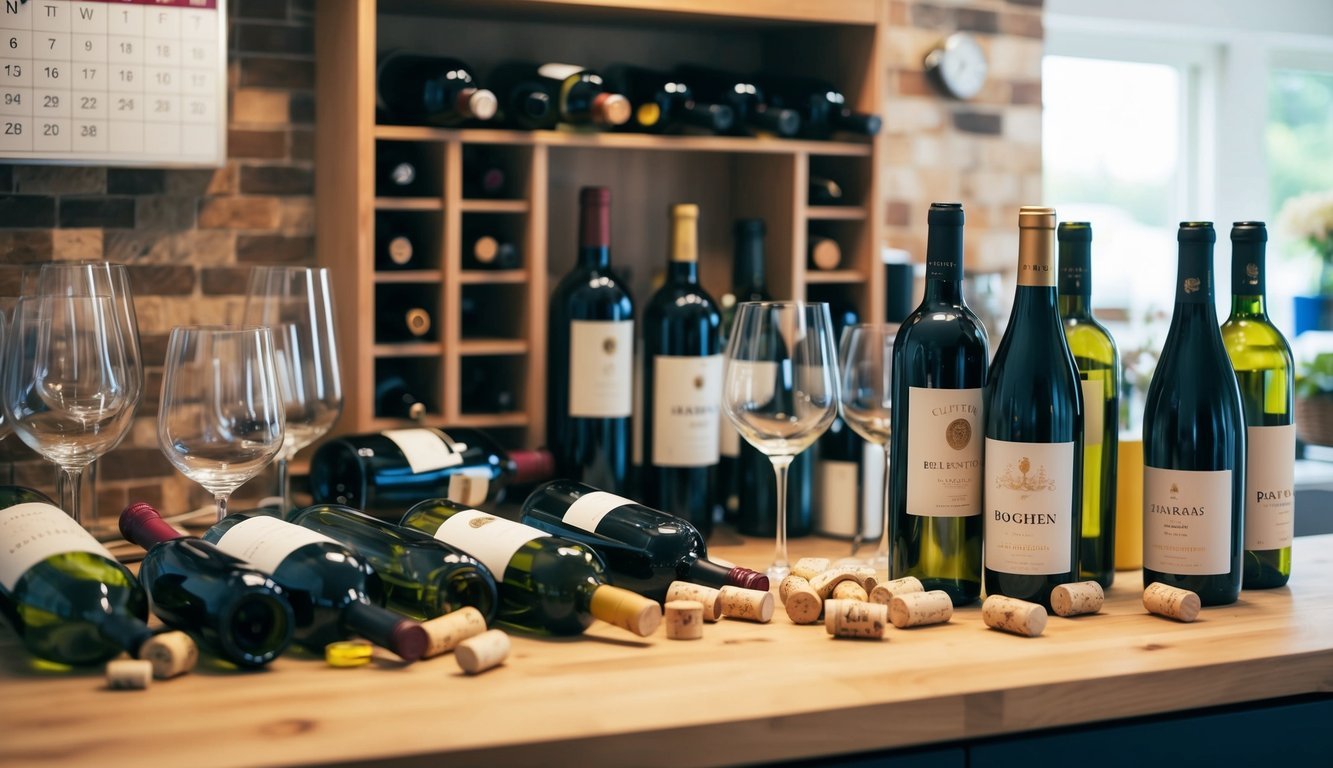
Your love for wine has reached new heights when you start contemplating baby names inspired by your favorite varietal.
You find yourself daydreaming about a little Chardonnay toddling around the house.
You’ve even started justifying it to yourself. “It’s a beautiful-sounding name,” you muse. “And hey, at least it’s not Cabernet or Merlot!”
You catch yourself browsing wine-themed baby name lists online.
Suddenly, Riesling and Syrah don’t seem so far-fetched either.
You’re already picturing the themed nursery.
Grape vine decals on the walls, a crib shaped like a wine barrel – it’s going to be perfect!
Your partner gives you a strange look when you suggest it, but you’re convinced they’ll come around eventually.
After all, who wouldn’t want a child named after such a noble beverage?
Maybe you’ll compromise and use it as a middle name instead.
Sophia Chardonnay has a nice ring to it, doesn’t it?
7) Your credit card statement reads like a wine menu.
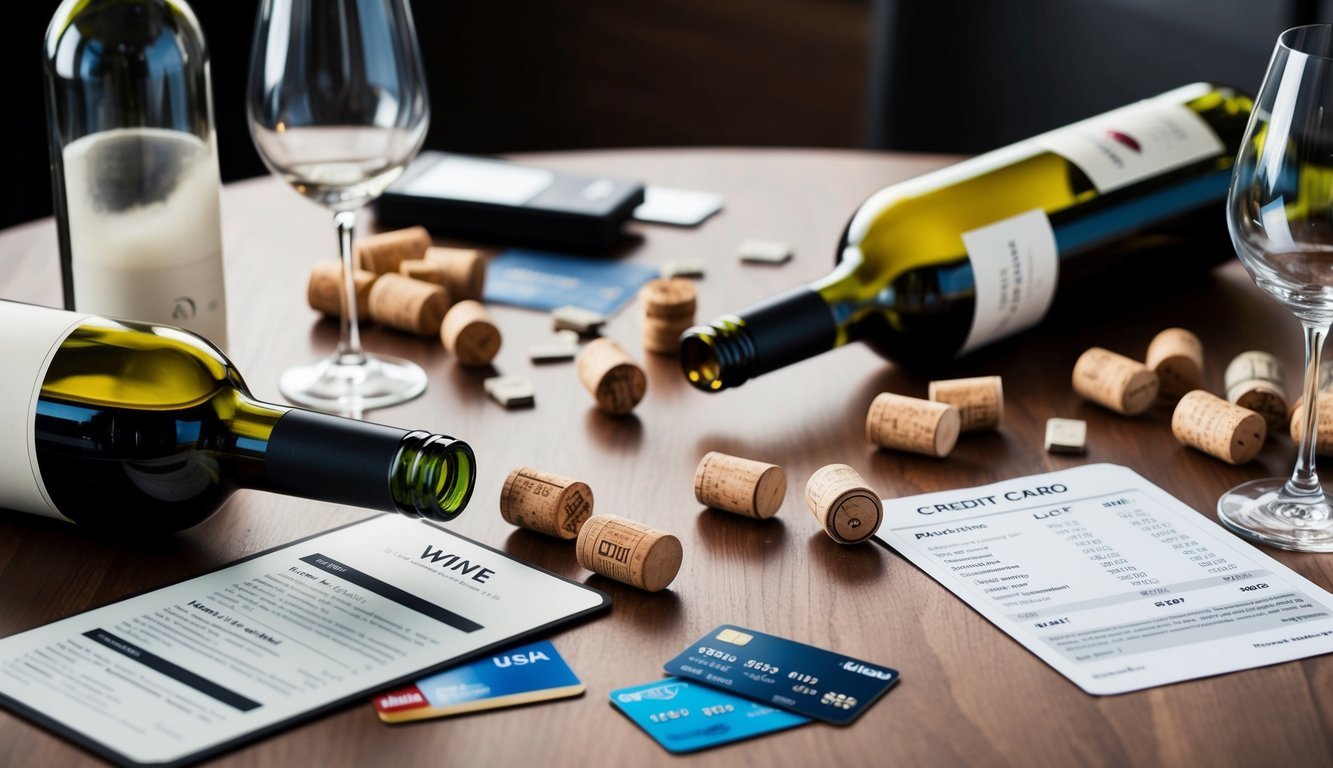
You find yourself squinting at your latest credit card statement, and it looks oddly familiar.
That’s because it’s filled with charges from wine shops, online retailers, and vineyards.
Your purchases read like a sommelier’s wish list.
Cabernet Sauvignon, Pinot Noir, Chardonnay – they’re all there, line after line.
You might notice multiple charges from the same merchant in a single day.
It seems you couldn’t resist trying that new vintage or stocking up on your favorites.
The amounts vary wildly.
Some are small, perhaps impulse buys at the local wine store.
Others are larger, possibly from wine club memberships or cases ordered online.
You may even spot charges for wine accessories.
Corkscrews, decanters, and specialized glasses have found their way onto your statement.
When you tally up the wine-related expenses, you’re shocked at the total.
It’s a significant portion of your monthly spending, rivaling essential categories like groceries or utilities.
8) The recycle bin is overflowing with empties every single Tuesday.
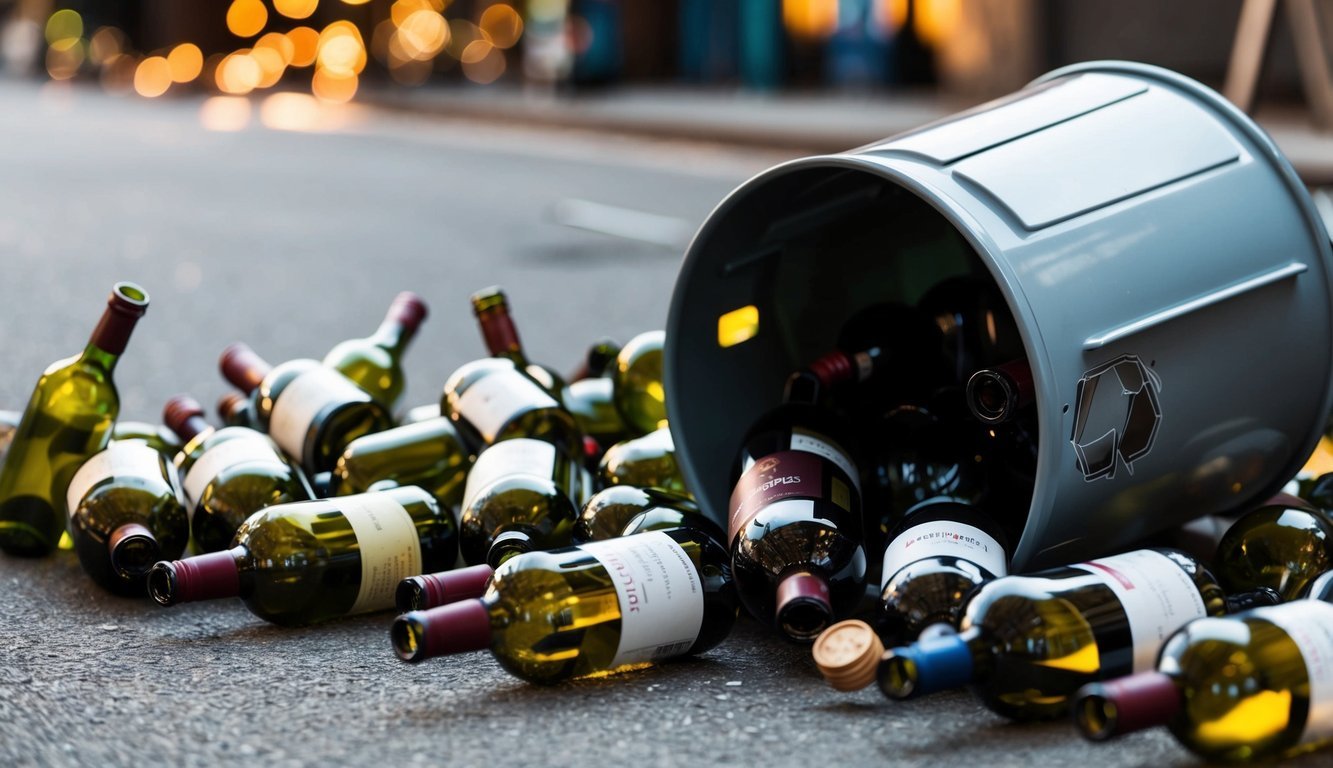
Your weekly wine consumption has reached a noticeable level when your recycle bin is bursting with empty bottles every Tuesday.
The sight of a full bin might be more than just a sign of your recycling habits.
It’s time to take a closer look at your drinking patterns.
Count how many bottles end up in that bin each week.
Are you surprised by the number?
Consider the frequency of your wine consumption.
If you’re filling the bin consistently every Tuesday, it may indicate a regular drinking routine that’s becoming excessive.
Think about how often you need to empty the recycle bin.
If you’re making special trips just to dispose of wine bottles, it could be a red flag.
Reflect on whether you feel the need to hide or quickly dispose of the empties.
This behavior might suggest you’re uncomfortable with the amount you’re drinking.
Remember, it’s not just about the quantity of bottles.
Even a few large containers can signify heavy consumption.
Be honest with yourself about your habits and consider seeking help if needed.
Understanding Your Relationship with Wine
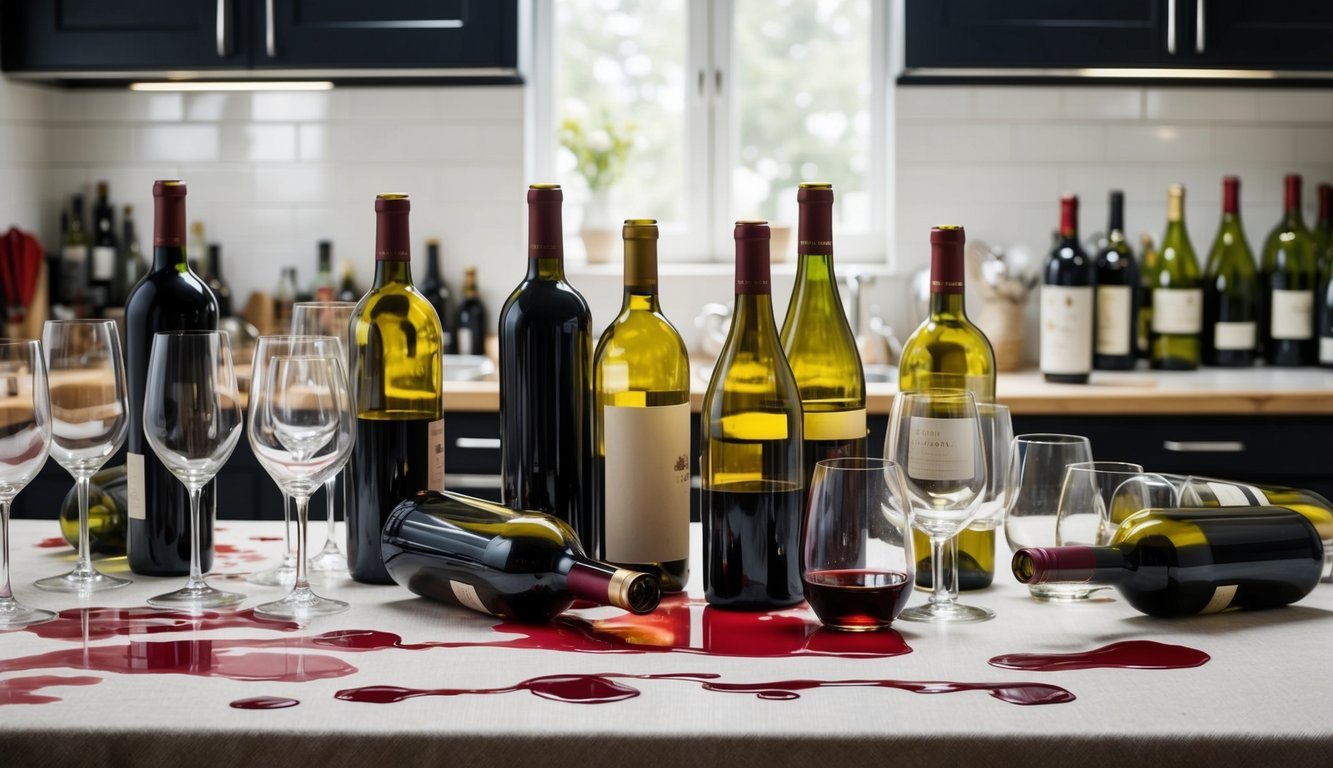
Your connection with wine goes beyond just enjoying a glass.
It’s shaped by personal emotions and social influences that can impact your consumption patterns.
Recognizing Emotional Triggers
Wine often becomes a go-to for managing stress or celebrating achievements.
Pay attention to when you reach for a glass.
Are you using it to unwind after a tough day? To boost confidence at social events?
Identifying these triggers helps you understand your motivations.
Try keeping a journal to track your wine consumption and the emotions associated with it.
This awareness can lead to healthier coping mechanisms and more balanced drinking habits.
Exploring Social Drinking Norms
Your social circle plays a significant role in your wine habits.
Do you feel pressured to drink at gatherings? Is wine a central part of your social interactions?
Consider how often you drink simply because others are.
Challenge yourself to attend events without alcohol or bring non-alcoholic alternatives.
Set personal limits before social occasions and stick to them.
Remember, it’s okay to decline a drink.
True friends will respect your choices and support your well-being.
Impact on Health and Well-Being
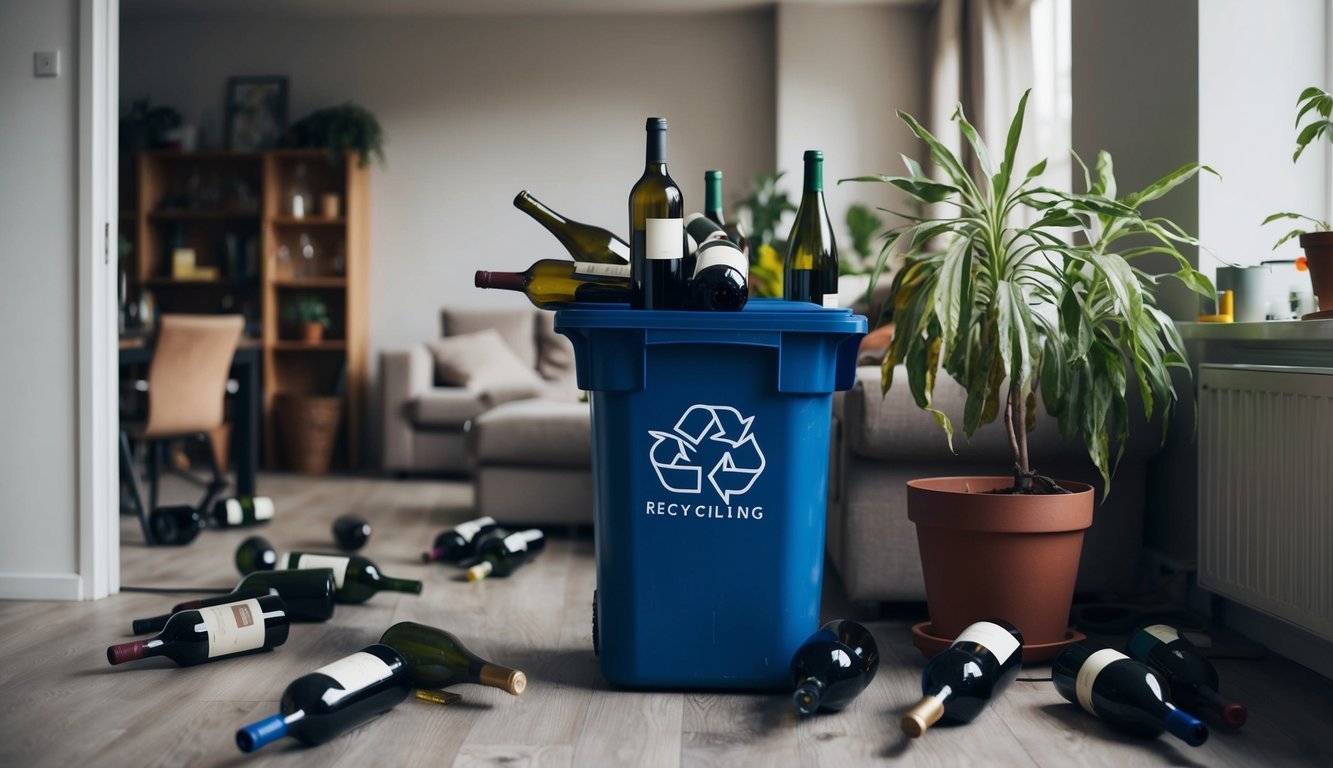
Excessive wine consumption can take a serious toll on your body and mind.
Regular overindulgence may lead to various health issues and affect your overall quality of life.
Physical Health Consequences
Your liver bears the brunt of heavy drinking.
Consuming too much wine can lead to fatty liver disease, hepatitis, or cirrhosis.
Your cardiovascular system suffers too, with increased risks of high blood pressure and heart disease.
Frequent wine drinking can disrupt your sleep patterns, leaving you tired and groggy.
It may also weaken your immune system, making you more susceptible to illnesses.
Weight gain is another common side effect.
Wine is calorie-dense, and those extra glasses add up quickly on the scale.
Long-term excessive drinking can increase your risk of certain cancers, including breast, liver, and colorectal cancer.
Mental Health and Mood Swings
Excessive wine consumption can affect your mental well-being.
You might experience more frequent mood swings.
You could feel great while drinking but crash into irritability or depression afterward.
Anxiety levels may spike, especially during hangovers or when you can’t have a drink.
This can create a vicious cycle of drinking to alleviate anxiety, only to worsen it in the long run.
Memory problems and difficulty concentrating are common issues.
You might struggle to recall recent events or find it hard to focus at work.
Your relationships can suffer as your behavior becomes unpredictable or you prioritize drinking over social engagements.
This isolation can further impact your mental health, creating a downward spiral that’s tough to break.

